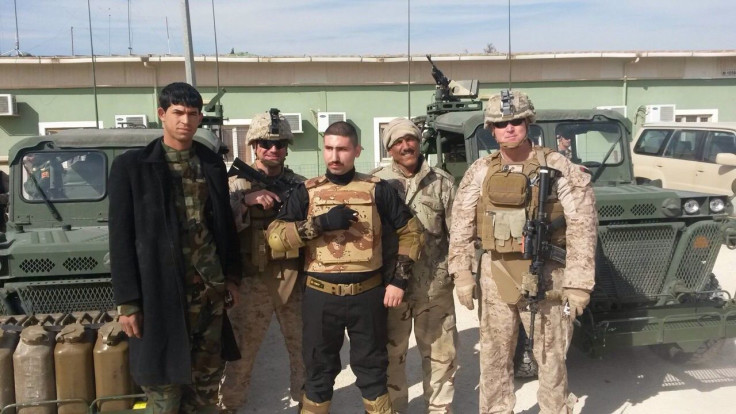Iraqi Forces Face New Test In Anbar Battle

BAGHDAD -- Iraqi security forces and the predominantly Shiite volunteer militias will face a new, more difficult battle against the Islamic State group in Anbar province. The Iraqi forces liberated Tikrit this week with the help of U.S. airstrikes, but their tactics in that battle will not necessarily work well in Anbar -- a region dominated by Sunni tribes, some with connections to the enemy.
Wednesday night, Iraqi security forces along with Hashd al-Shabi, aka the Popular Mobilization Committee, a group that consists of predominantly Shiite fighters with Iranian weapons, defeated the militant group formerly known as either ISIL or ISIS in Tikrit.
The head of Hashd al-Shabi and the leader of the largely Shiite Badr brigade, Hadi Al-Ameri, said the liberation of Tikrit meant the entire Salahuddin province was under the control of Iraqi forces.
“We will celebrate the liberation of Salahuddin province soon, as we did in Diyala governorate. We will then move into Anbar province and Nineveh [Mosul] will be our final destination,” Al-Ameri said at a press conference in Tikrit Friday.
The liberation of Tikrit -- taking more than a month to complete, even with the help of U.S. airstrikes -- marked a significant step forward for Iraqi forces. Tikrit, a city a bit more than 100 miles north of Baghdad and the hometown of deposed dictator Saddam Hussein, was captured by the Islamic State group in June. Last month, Iraqi security forces led an invasion to retake the city. It was the first major offensive launched by Iraqi forces to retake a city captured by the militant group.
But the ground offensive stalled for nearly two weeks because of disagreements among Iraqi military leaders and Shiite militias about how to proceed. Those disagreements trickled down through the ranks of both the Iraqi security forces and Hashd al-Shabi, signaling a worrying lack of coordination between the government and the men fighting on the front lines.
That miscommunication will likely affect the battle in Anbar where the Islamic State group has found a foothold during the past two months. Although the Iraqi forces and Shiite militias waded through the disagreements and chaos on the front lines in Tikrit, the battle in Anbar will include an entirely new dimension: the coordination with Sunni tribes, which will require negotiation among three factions, instead of just two.
The battle in Anbar will be a test for the Shiite militias because the Sunni brigades have so far restricted their access to the battlefield. Until now, the Sunni tribes, along with a select group of men from Iraqi security forces and some policemen, have led battles almost entirely on their own. Long-standing distrust between the Sunni tribes and the Shiite-dominated military prevents the two from working together, tribal leaders said in interviews, although there have been cases of successful cooperation.
The battle in Anbar will be tactically different, too.
Sunni tribal fighters in Anbar province, particularly in Ramadi city, have been fighting the Islamic State group with unconventional methods. They are fighting without the missiles and other heavy weaponry promised by the U.S., and are instead digging tunnels near the militants’ outposts, lining them with explosives and detonating them.
Videos obtained by International Business Times show members of the Iraqi military, the Anbar Central Command -- a security force that patrols the province -- and Sunni tribal fighters installing explosives in a tunnel in Ramadi. In the video, men are seen crawling out of the tunnels after finishing their dig to the Islamic State group outposts.
The unconventional warfare is the result not only of a lack of heavy weaponry but also of the militant group’s movement on the ground. The Islamic State group has been able to disperse its fighters widely throughout the province and has booby-trapped large swaths of land. Although the U.S.-led coalition has conducted airstrikes in the region, the tunnel warfare appears to be working just as well, Sunni tribal fighters say.
But there is one major problem in Anbar that has yet to be addressed by both the Iraqi and U.S. governments: Some Sunni tribal leaders in Iraq’s Anbar province who have enlisted to fight against the Islamic State group are actually working with the militant group, providing it with weapons and other materials, according to Sunni fighters in Anbar.
The weapons were taken from Iraqi military stockpiles that were replenished by the U.S. and given to Islamic State group militants who are fighting to gain ground around the Ain al-Asad air base, where about 1,400 U.S. troops are stationed as they train Iraqi forces.
© Copyright IBTimes 2024. All rights reserved.





















